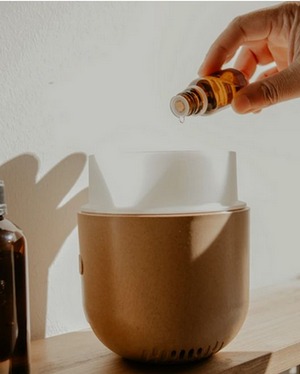June 13th
How can you best support your body when you catch a cold?
There are many ways we can support our bodies naturally during a cold, and this post will discuss some useful tips for how we can care for ourselves while sick.
With plenty of rest and self care, getting extra sleep, eating nourishing foods, drinking plenty of liquids, taking vitamins or supplements, using essential oils and other homeopathic treatments, and avoiding intentionally reducing a low grade to moderate fever can all support someone during their recovery from an illness.
Rest, Self Care, and Sleep
We all catch colds from time to time, and some people choose to take cold medicine to minimize their symptoms and go about their lives. However, instead of taking pharmaceutical medication or going to see a doctor, there are many natural ways we can support our bodies while we are healing. When we get colds, our bodies want us to slow down and recover, not take medicine that dampens our symptoms so we can push through our illnesses by working long hours. Not taking the time to rest and enduring increased stress can prolong an illness, making our bodies work harder than they need to. This is why it is crucial for us to take a break when we have a cold if our lifestyles allow for it. If we can take off work or relinquish some of our household duties onto our partners or other family members, we will be better able to support our bodies’ processes of healing by resting, getting extra sleep, and caring for ourselves.
Nourishing foods
While many of us may want to eat something quick from the pantry while sick, eating nourishing foods can be very beneficial in our processes of healing. It can be useful to avoid added processed sugars when possible, and eat foods that are nourishing, comforting, and easy for the body to process. Foods like soup, applesauce, and toast can be comforting, nutritious, and filling. Soup is one of the best foods to eat during a cold, especially when it is made with either bone or alkaline broth. Bone broth is one of the most nutritious liquids, and makes a great base for many soups. Alkaline broth is a great substitute for people who do not eat meat. There are many recipes online for bone and alkaline broth recipes, and below are links to a couple recipes. These broths do take time to make; therefore, it can be useful to have a batch on hand in the freezer for the next time you catch a cold.
Alkaline: https://drannacabeca.com/blogs/recipes/alkaline-broth
Bone Broth: https://bumblebeeapothecary.com/nourishing-traditions-chicken-bone-broth/

Staying Hydrated
Drinking plenty of water is important while recovering from a cold and should not be ignored, but there are also other liquids that are useful to a healing body. Bone or alkaline broth can be drunk plain outside of a soup, which can be useful to people who may not be up for eating solid foods due to an upset stomach. Unsweetened sparkling water can also help with the cold symptom of nausea. Orange juice, especially fresh squeezed, is high in vitamin C and supports the body while sick. Lastly, hot drinks such as tea or hot water with lemon or honey help keep the body warm and soothe a sore throat. Herbal teas such as peppermint, chamomile, Yogi Throat Comfort, and Medicinals Organic Throat Coat can be especially comforting.
Vitamins/Supplements
Four of the best vitamins and supplements to take while sick are vitamin C, vitamin D, zinc, and quercetin.
Vitamin C is useful for bodily healing processes, and can speed up the recovery from a cold. Typically we get vitamin C through our food. It can be found in citrus fruits, spinach, broccoli, berries, etc. However, we can also get vitamin C through an oral supplement. Eating vitamin C-dense foods or supplementing with oral tablets or capsules can support the body during a cold.
According to the National Library of Medicine, a vitamin D deficiency can be linked to “increased susceptibility to infection.” Appropriate levels of vitamin D in the body support the immune system and can aid in the recovery from an illness. Vitamin D can also be found in a supplement oral tablet or capsule form.
Taking zinc and quercetin supplements can also help one’s body during recovery from a cold. Dr. J Zimmerman discusses how zinc and quercetin work together to support the body in an article linked down below. Zimmerman explains that “zinc is vital for immune system function. Zinc controls immune system messaging within the cells and is also an antioxidant (prevents cell damage) and is anti-inflammatory.” He then goes on to state that “the major benefit of taking quercetin with zinc is that the quercetin will push the zinc into the center of the cell where the zinc can stop the virus from reproducing.” In other words, quercetin supports zinc’s effort to help heal the body.
National Library of Medicine Vitamin D and Immune System Link: https://www.ncbi.nlm.nih.gov/pmc/articles/PMC3166406/
Dr. J Zimmerman Zinc and Quercetin Article: https://www.healthfirstdc.com/blog/the-importance-of-zinc-and-quercetin-during-pandemic

Essential Oils
Essential oils can be a great tool for us to use when we catch a cold. Certain essential oils are useful for relieving congestion and headaches and others can promote relaxation and potentially reduce stress levels. Essential oils can be used in diffusers, vaporizers, or humidifiers. These machines put more moisture into the air, which can ease cold symptoms on their own, and by adding essential oils to the machines, symptoms of congestion, for example, can be further relieved. Essential oils can also be placed directly onto one’s external skin (for example: chest, feet, temples); however, some people may be sensitive to certain essential oils so it is important to test out the oil on a small area of skin first. If the oils are too strong on their own for one’s skin, they can be combined with a carrier oil, such as grape seed oil. Essential oils that are good for congestion include, but are not limited to, eucalyptus, peppermint, and tea tree. Lavender can also help with congestion and is calming; therefore, it is also useful in reducing stress. In addition to individual essential oils, many companies sell essential oil blends. These can be useful for relieving cold symptoms such as a headache. For instance, Revive Headache Relief essential oil blend includes a blend of eucalyptus, rosemary, lavandin grosso, peppermint, and hyssop. Lastly, these oils can also be used to make a homemade mentholatum or vapor rub that includes natural ingredients to help with congestion. Below, a link will be included to a homemade vapor rub.
Vapor Rub: https://livesimply.me/homemade-vapor-rub/
Other Natural Healing Tools
A helpful way to take preventative measures against a cold is to gargle with warm salt water. This helps to wash out bacteria in the mouth and throat. This can be done throughout the duration of a cold to reduce the bacteria present. Herbal throat sprays can also reduce pain in the throat. These are a great alternative to many cough drops which often contain sugar.
If possible, it is also beneficial to get out in the sun when you have a cold. The vitamin D from the sun and the fresh air from outside are useful in helping our bodies to heal.
Avoiding Intentional Fever Reduction
Contrary to common belief, it can be beneficial to avoid the intentional reduction of a low grade to moderate fever. When we get a cold, it is often accompanied by a fever because the fever helps in fighting off the infection by killing the virus. Instead of trying to lower a low grade to moderate fever, it is important to keep the body appropriately warm during a cold. While baths and showers are warm and can aid in reducing congestion, it is better to take a bath only when one does not have a fever because as soon as one exits the warm water, their temperature will drop. This is why it is also beneficial for people to avoid washing their hair while they have a fever. Their temperature will remain more even if they can keep their body constantly warm.
Below is a link to a piece written by Dr. Susan R. Johnson MD, who addresses children and fevers. This piece discusses anthroposophical medicine, and Johnson highlights that “in anthroposophical medicine, a fever is seen as good because it actually strengthens the child's immune system and helps a child get further into their physical body.”
https://www.waldorflibrary.org/images/stories/Journal_Articles/sjohnsonfever.pdf
Finishing Thoughts
We all will encounter viruses and bacteria throughout our lives, and it is important to understand how we can naturally heal our bodies without the help of pharmaceutical cold medicines or doctors. For most of us, our bodies know how to heal themselves without the help of pharmacists or doctors. We just need to learn how we can support our bodies while they are going through their natural healing processes. This post covers how most of us can take care of ourselves and our bodies in natural and holistic ways. Trusting our bodies is essential, and to do this we each need to do what is best for our individual bodies. By listening to what our bodies need, we can each individually learn how we can best support ourselves.
Questions to Consider
How do you care for yourself while you are unwell?
Are there any additional natural healing methods you would recommend or wish to share?
What is your favorite form of self-care when you have a cold?
Are there any natural healing tips you learned in this post that you want to try and implement into your routine the next time you have a cold? If so, which one(s)?

